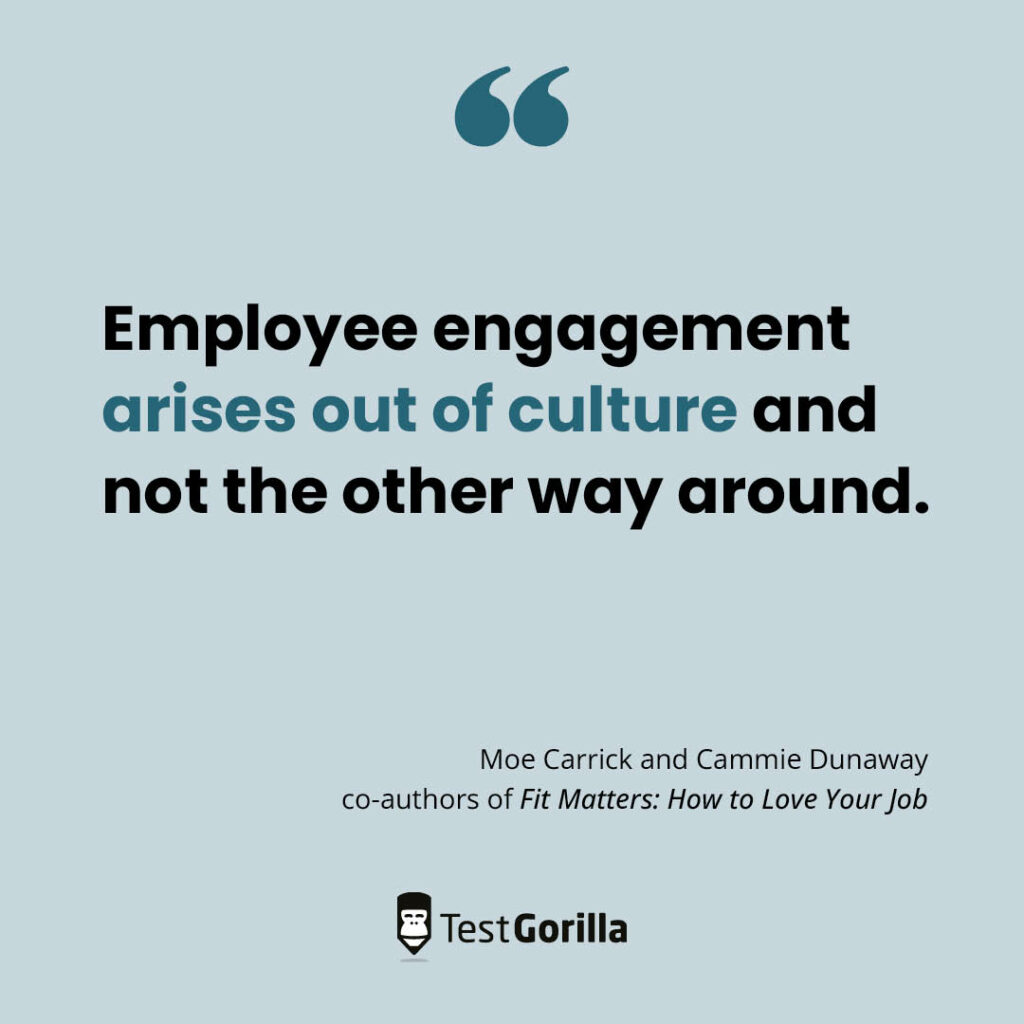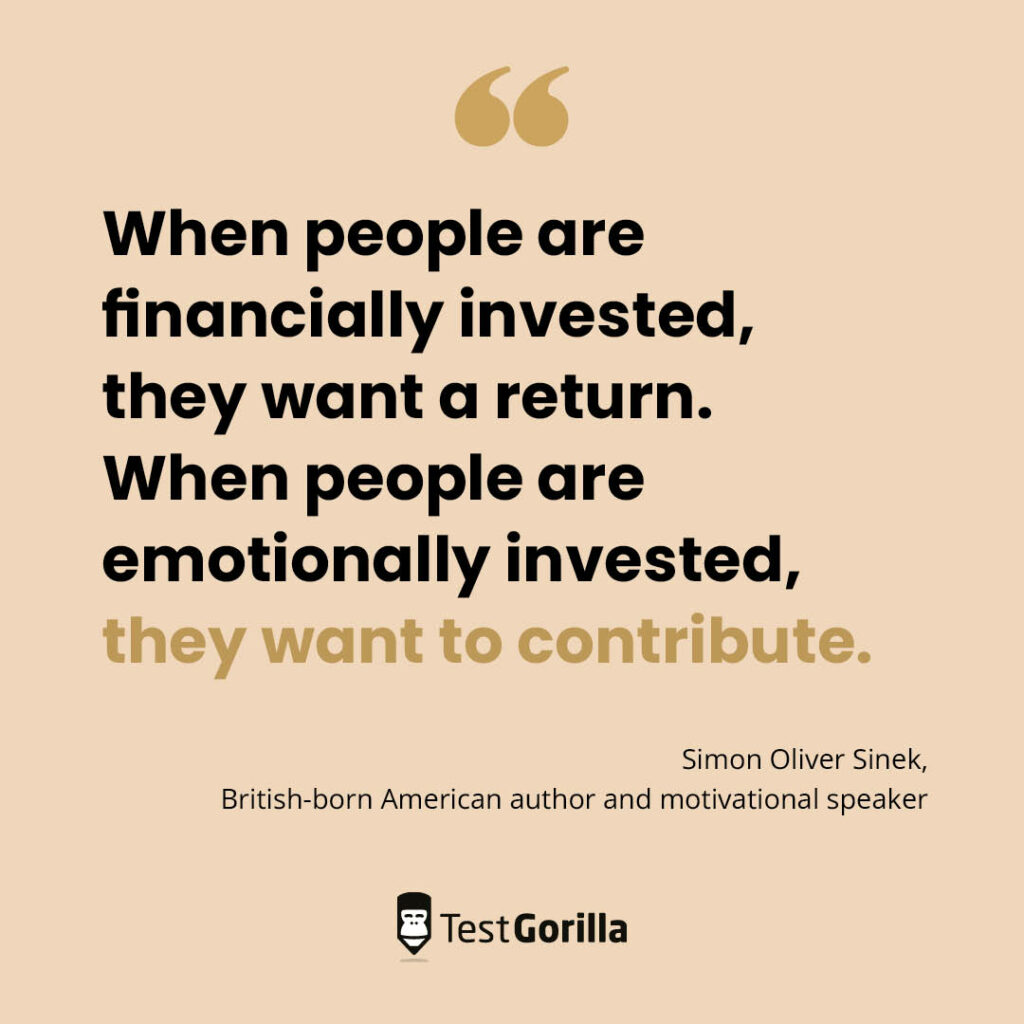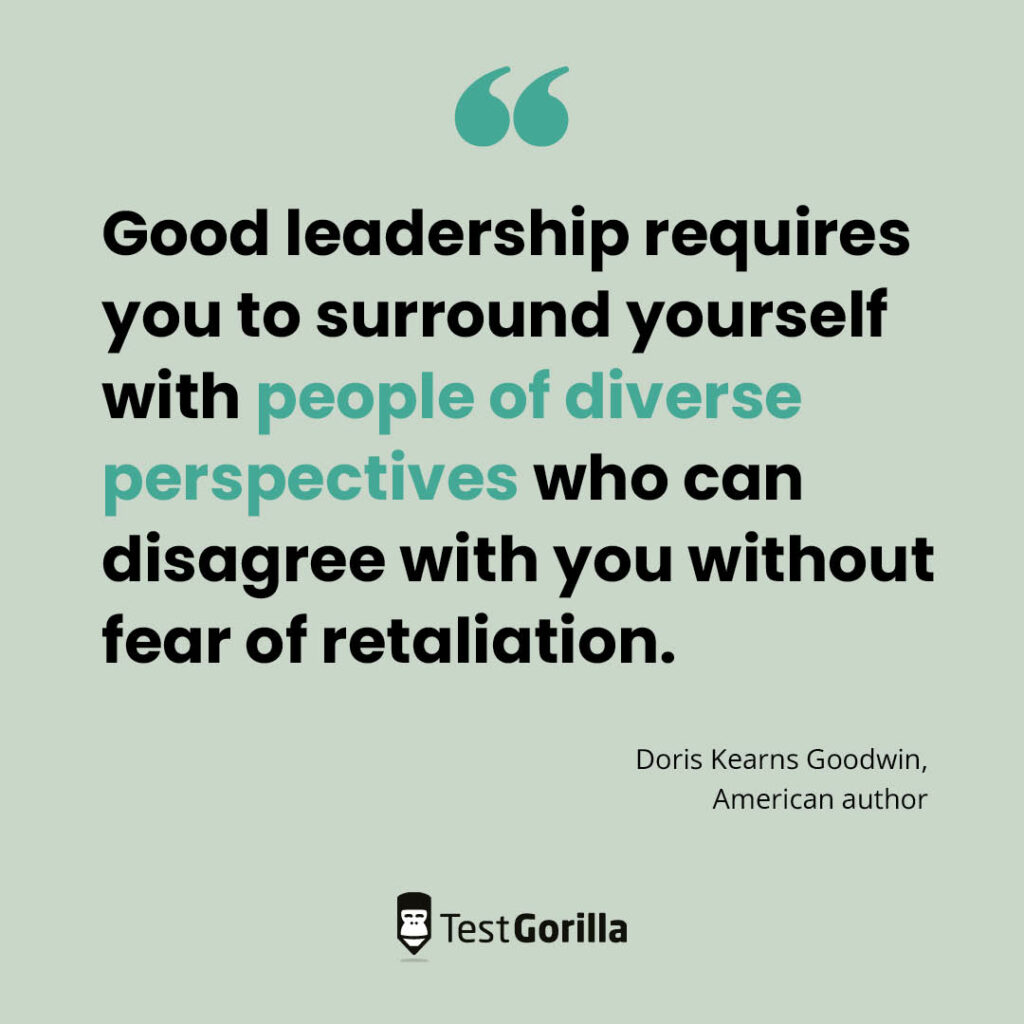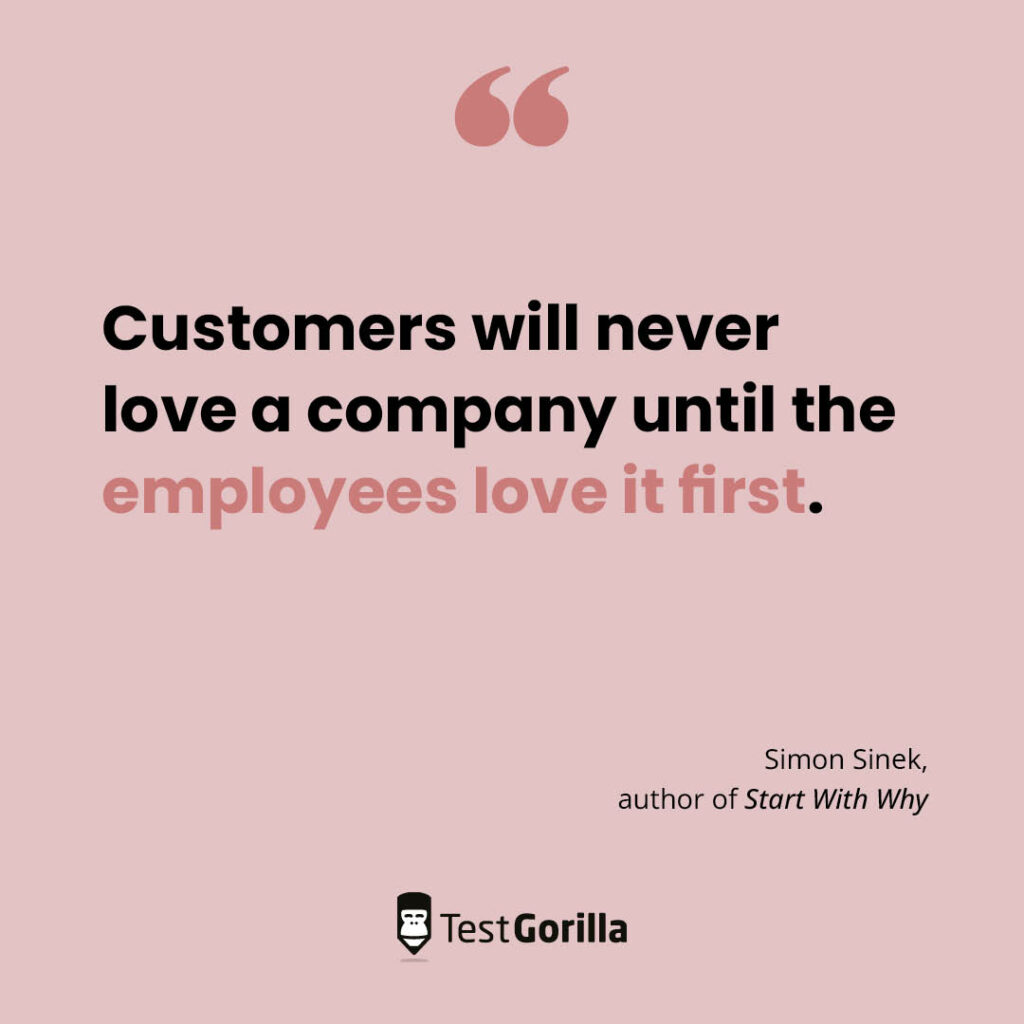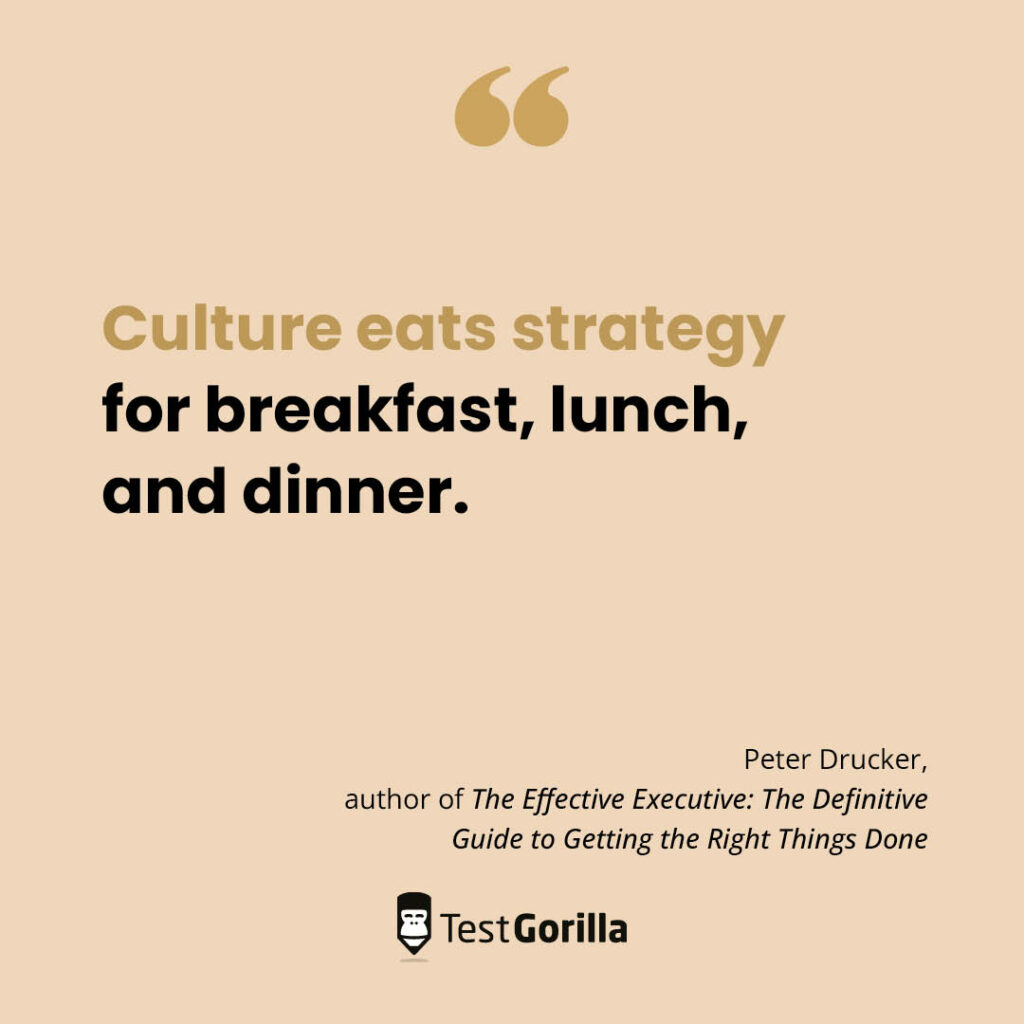Company culture, or as you will sometimes hear it referred to, corporate culture or also organizational culture, is one of the essential pillars of a company’s success (or downfall).
A strong company culture can help businesses thrive, improve productivity, increase the retention rate of employees, grow sales, and more. A weak company culture, on the other hand, can be the cause of deteriorating interpersonal relationships, a drop in sales, and plummeting productivity.
But what is company culture exactly?
Company culture is a mix of behaviors, values, attitudes, and processes (norms) that a company has that make up the way the organization operates. We could say it’s the company’s character.
The company’s culture can be defined in different ways, like, for example, innovative (Apple), disciplined (Tesla), or agile (Patagonia). It’s also the overall feeling people have when they’re working at the said company.
And a strong company culture is so important to employees that they even rank it above salary when they’re choosing a workplace.
In this article, we’ll share 11 inspirational quotes about company culture that you can use to improve your own.
Table of contents
- 1. On disruptive people and diversity
- 2. On employee engagement
- 3. On emotional investment
- 4. On freedom and autonomy
- 6. On empowering employees
- 7. On the importance of hiring the right people
- 8. On new ideas
- 9. On gaining your customers’ love and trust
- 10. On putting culture to the test
- 11. On culture and strategy
- Build a strong company culture to outperform competitors and thrive
1. On disruptive people and diversity
“The most vocal challengers to most cultures are the first to be shown the door. It’s in human nature to want to eliminate the most disruptive people. And it’s also human nature to want to bring in more people that fit in well. Repeat these two behaviors over time and culture becomes homogeneous, even if everyone still believes the culture values diversity.”
– Scott Berkun, bestselling author and popular speaker on UX design
This is a really important quote by Scott Berkun that explains how you need to approach the diversity of ideas in your workplace.
Everyone constantly says that you need to hire diverse people who have different opinions in the workplace, but there’s not a lot written on how to keep and integrate the people who think differently in the company.
And if you’re not careful in keeping those people around, they will soon leave and you will have a homogenous culture which can lead to groupthink.
2. On employee engagement
“Employee engagement arises out of culture and not the other way around.”
– Moe Carrick and Cammie Dunaway, co-authors of Fit Matters: How to Love Your Job
There’s been a lot of focus on improving employee engagement in the workplace. And it’s no wonder, given that the numbers tell quite a grim story: Only a third of the employees are engaged at work.
But how to improve that in your workplace?
It’s about realizing that those numbers aren’t gonna improve on their own. You need to invest in improving your company culture; this, in turn, will help improve the overall employee engagement at your organization.
3. On emotional investment
“When people are financially invested, they want a return. When people are emotionally invested, they want to contribute.”
– Simon Oliver Sinek, British-born American author and motivational speaker
When creating a company culture, you need to understand the deeper motivational factors that can draw people in. If your employees are working only for a paycheck, they will leave as soon as another company offers them a bigger paycheck.
But if your employees are emotionally invested in the business, if they’re fully behind the company’s mission and vision, and they truly believe in what the business is trying to accomplish, then they will stick around.
So take a look at your company culture and see if you can get people emotionally invested in your company’s mission; make sure you’re also hiring the best people. If you do these two things, your employees will stick around.
4. On freedom and autonomy
“Hire great people and give them freedom to be awesome.”
– Andrew Mason, American businessman and entrepreneur
When you’re hiring people, you will need to provide them with the autonomy to do their best work. Don’t try to micromanage them or heavily restrict their freedom. You hired them because they’re smart, capable, and hard-working. Now, let them show that to you.
5. On the benefit of disagreement
“Good leadership requires you to surround yourself with people of diverse perspectives who can disagree with you without fear of retaliation.”
– Doris Kearns Goodwin, American author
Having a great company culture means that people aren’t afraid to speak up, even if their opinion goes against the grain. You need to create a culture where it’s okay (and even encouraged) to speak your mind.
But how do you achieve that? By hiring for culture add rather than for culture fit – and by bringing objectivity into hiring for culture.
When employees aren’t afraid of retaliation, they will actively contribute to your company with their perspectives, opinions, and insights. If they’re afraid, they will simply keep quiet and, in the end, your business will suffer.
6. On empowering employees
“Treat employees like they make a difference and they will.”
– Jim Goodnight, CEO of SAS Institute
When you treat your employees like they can make a difference in the workplace, then they will. It’s a self-fulfilling prophecy: If they think they can do it, they will do it; if they think they can’t, they won’t.
So make sure that you don’t treat your people like a faceless mass of productivity, but as individuals who can make a difference to your company.
7. On the importance of hiring the right people
“Shaping your culture is more than half done when you hire your team.”
– Jessica Herrin, CEO and founder of Stella & Dot
You can nudge the direction of your company culture, but you can’t fully control it. It’s made up of all the people who are a part of your company.
So when hiring, you need to ensure that you hire the right people. So, it needs to be crystal clear to you who the right people are and how to identify them objectively (for example by using a Culture Add test).
Do you want innovative, disciplined, or rebellious people? Would you rather have a team of introverted and detail-oriented or extroverted and big-picture people?
All of this needs to be clear to you before you start hiring. You also need to make sure that you assess people correctly, objectively, and in a bias-free way. This is where TestGorilla can help you out with more than 280 scientifically created pre-employment tests.
8. On new ideas
“The leader’s job isn’t to have all the ideas. It’s to make sure all the ideas are heard and that the best one wins.”
– Chris Hawker, American entrepreneur
Employees will always look at what the leader does and emulate their behavior. So, the job of the leader isn’t just to bring new ideas to the table, but to create an environment where everyone can share their ideas. Then, the leader needs to make sure that the best idea wins and is implemented.
As a leader, you’re essentially enabling your team members to contribute to the success of the team and the company.
9. On gaining your customers’ love and trust
“Customers will never love a company until the employees love it first.”
– Simon Sinek, author of Start With Why
The success of a company starts with the success of its employees. If its employees don’t love it, then customers won’t love its products either.
So, focus on creating a company culture where your employees love the company and care about its success – and then the “spillover effect” will carry that to customers.
Invest in your employees and they’ll take care of your customers.
10. On putting culture to the test
“If culture is like personality or character, then it matters in the sense to what extent is the culture adaptive to both the external and internal realities. If it’s not adaptive, it matters a lot. If it’s adaptive, it doesn’t matter much, people don’t notice it, they just go along their merry way. So culture really only matters when there is a problem. In the same sense that personality only matters when things aren’t working right for you. Otherwise it’s just there. It’s part of you.”
– Edgar Schein, a Swiss-born American business theorist and psychologist and professor at the MIT Sloan School of Management
It’s like with personal values: we all think we know what our values are, but only when tested, we realize what our actual values are. The same thing holds true for company culture.
Only when you thoroughly assess your company culture and put it to the test, you’ll be able to actually see what it looks like.
For example, if your company values teamwork and kindness, but one of your top-performing sales agents makes everyone’s life miserable, what should you do? Will you seek to discipline them or will you let them be because of their numbers?
This is where you see what the actual company culture is like.
11. On culture and strategy
“Culture eats strategy for breakfast, lunch, and dinner.”
– Peter Drucker, author of The Effective Executive: The Definitive Guide to Getting the Right Things Done
Culture is so powerful that it beats strategy by a landslide. When Jim Collins was doing research for his book, Good To Great, he was interested in finding out the difference between great companies and all the others. The result? He realized that great companies didn’t have a better strategy, but a better culture.
Company culture can be an extremely powerful tool, but leaders need to defend it. How? Well, first of all, they need to reward positive behavior that they want to see more of in the workplace. At the same time, they need to punish the behavior that goes against the company’s culture.
They need to show all employees that they are serious when it comes to the company’s values, mission, and vision – and that they won’t compromise or make exceptions. This approach will make you stand out from the crowd.
Build a strong company culture to outperform competitors and thrive
The difference between a strong and weak company culture is immense. And you need to make sure that you build a strong company culture that your employees identify with and believe in.
Even though the company culture is malleable, it still depends on your employees to a large extent. This is why it’s critical to hire the right people and make sure their values align with yours.
TestGorilla can help you identify the best new hires not only in terms of skills but also in terms of culture and motivation.
Book a free demo call with us to see how you can best use our tests to hire the best.
Related posts
Hire the best candidates with TestGorilla
Create pre-employment assessments in minutes to screen candidates, save time, and hire the best talent.
Latest posts
The best advice in pre-employment testing, in your inbox.
No spam. Unsubscribe at any time.

Hire the best. No bias. No stress.
Our screening tests identify the best candidates and make your hiring decisions faster, easier, and bias-free.
Free resources
This checklist covers key features you should look for when choosing a skills testing platform
This resource will help you develop an onboarding checklist for new hires.
How to assess your candidates' attention to detail.
Learn how to get human resources certified through HRCI or SHRM.
Learn how you can improve the level of talent at your company.
Learn how CapitalT reduced hiring bias with online skills assessments.
Learn how to make the resume process more efficient and more effective.
Improve your hiring strategy with these 7 critical recruitment metrics.
Learn how Sukhi decreased time spent reviewing resumes by 83%!
Hire more efficiently with these hacks that 99% of recruiters aren't using.
Make a business case for diversity and inclusion initiatives with this data.

